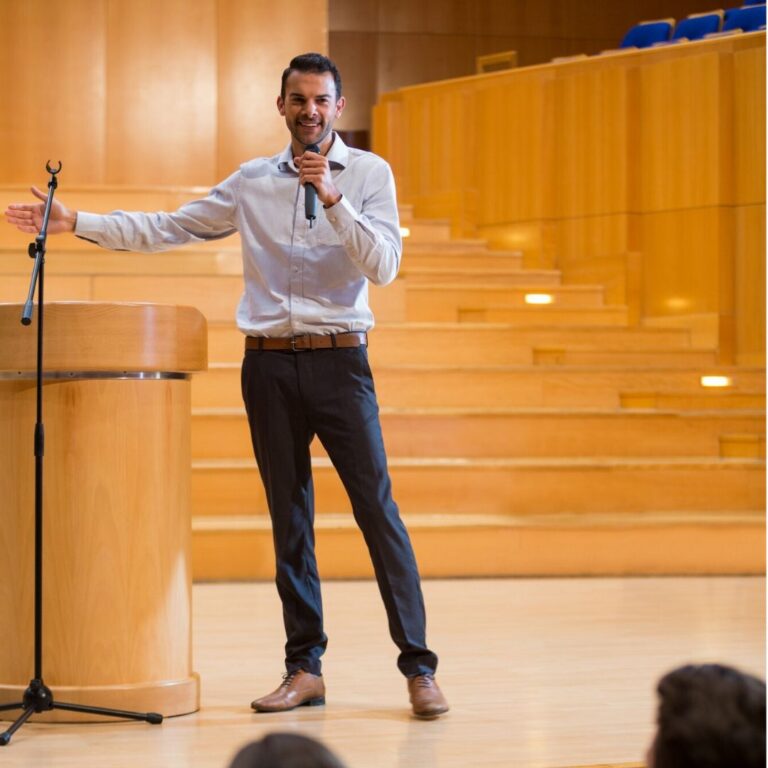
- Home
- Mock Interviews to Ace Your Next Job Interview with Ease
- Shelby Academy
- 0 Comments
- January 7, 2025

Mock Interviews to Ace Your Next Job Interview with Ease
Job interviews can be intimidating, but thorough preparation can make all the difference. Mock interviews are a powerful tool to help you refine your skills, build confidence, and leave a lasting impression on potential employers. This guide explores the importance of mock interviews and how they can help you ace your next job interview.
Understanding Mock Interviews
Mock interviews simulate real interview scenarios, providing valuable insights into your performance. They allow you to practice responses, gain feedback, and identify areas for improvement.
What Are Mock Interviews?
Mock interviews are practice sessions designed to mimic the structure and environment of actual job interviews. They often involve a friend, mentor, or professional posing as the interviewer. These sessions can be conducted in person or virtually, replicating modern interview setups.
Why Are Mock Interviews Important?
Mock interviews help you become familiar with common questions, reduce nervousness, and enhance your ability to articulate thoughts. They provide a safe space to experiment with responses and receive constructive criticism.
Types of Mock Interviews
There are various types of mock interviews tailored to different needs, such as behavioral interviews, technical interviews, and case-study interviews. Understanding the type relevant to your role can maximize their effectiveness.
Benefits of Mock Interviews
Engaging in mock interviews offers several advantages that contribute to a successful job interview experience.
Improves Communication Skills
Mock interviews help you practice clear and concise communication. By responding to potential questions, you can refine your tone, body language, and choice of words to convey confidence and professionalism.
Enhances Self-Awareness
These sessions allow you to identify your strengths and weaknesses. Self-awareness is key to presenting your best self and addressing areas of concern effectively.
Builds Confidence
Confidence is a crucial factor in interviews. Mock interviews help reduce anxiety by familiarizing you with the process, enabling you to face the actual interview with poise.
Preparing for a Mock Interview
Adopting effective techniques can help you become a better listener, enhancing both personal and professional interactions.
Research the Role and Company
Thoroughly research the job description and company culture. Understand the skills and qualities the employer is seeking, and tailor your responses accordingly.
Compile Common Interview Questions
Prepare answers to frequently asked questions, such as “Tell me about yourself” or “What are your strengths and weaknesses?” Practice specific examples to illustrate your skills and achievements.
Choose the Right Interviewer
Select someone who can provide honest and constructive feedback. Ideally, this person should be familiar with the hiring process or your industry.
Conducting a Successful Mock Interview
A well-executed mock interview involves simulating realistic conditions and paying attention to details.
Simulate Real Interview Conditions
Dress professionally and choose a quiet, well-lit environment for your mock interview. Treat it as if it were the actual event to make the practice more effective.
Focus on Non-Verbal Communication
Non-verbal cues like eye contact, posture, and hand gestures play a significant role in interviews. Ensure your body language exudes confidence and attentiveness.
Record and Review the Session
Recording your mock interview allows you to observe your performance objectively. Analyze your responses, tone, and body language to identify areas for improvement.
Post-Mock Interview Feedback and Improvement
Feedback is an essential component of mock interviews. Constructive criticism helps you refine your approach and increase your chances of success.
Seek Detailed Feedback
Ask your interviewer for specific feedback on your strengths and areas needing improvement. Focus on both verbal and non-verbal aspects of your performance.
Create an Action Plan
Based on the feedback, create a plan to address weaknesses. Practice regularly to reinforce improvements and build confidence over time.
Repeat the Process
Mock interviews are not a one-time activity. Repeated practice helps you internalize the feedback and adapt to different interview scenarios, ensuring continuous growth.
Conclusion
Mock interviews are a valuable tool for anyone preparing for a job interview. By understanding their importance, preparing thoroughly, and incorporating feedback, you can sharpen your skills and boost your confidence. Whether you’re a first-time job seeker or a seasoned professional, mastering mock interviews will help you stand out and ace your next job interview.
Section Title
Confidence Exercises for English Speaking Speaking English confidently can be a challenge for many...
Tips for Confident English Conversations Speaking English with confidence is essential for effective...
Overcome Fear of Speaking English Enhance your English communication skills to impress clients and...
Impress Clients with English Communication Enhance your English communication skills to impress...
Ace Job Interviews with Business English Boost your confidence and excel in job interviews with...
Negotiate Successfully in Business English Master the art of negotiation in Business English! Learn...
Network Effectively with Business English Learn to network effectively using Business English!...
Polish English for Presentations Delivering a presentation in English requires clarity, confidence...
Key Business English Phrases for Professionals Effective communication in the business world...










